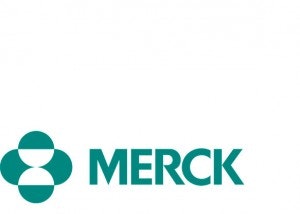Merck & Co., Inc. (NYSE:MRK) was in 56 hedge funds’ portfolio at the end of March. MRK investors should pay attention to a decrease in hedge fund sentiment of late. There were 60 hedge funds in our database with MRK positions at the end of the previous quarter.

Equally as integral, optimistic insider trading sentiment is a second way to parse down the financial markets. As the old adage goes: there are plenty of stimuli for a corporate insider to sell shares of his or her company, but just one, very simple reason why they would buy. Plenty of empirical studies have demonstrated the valuable potential of this method if “monkeys” understand where to look (learn more here).
With these “truths” under our belt, we’re going to take a peek at the recent action regarding Merck & Co., Inc. (NYSE:MRK).
What have hedge funds been doing with Merck & Co., Inc. (NYSE:MRK)?
At the end of the first quarter, a total of 56 of the hedge funds we track were long in this stock, a change of -7% from the first quarter. With hedgies’ positions undergoing their usual ebb and flow, there exists a few noteworthy hedge fund managers who were upping their holdings meaningfully.
Of the funds we track, Levin Capital Strategies, managed by John A. Levin, holds the biggest position in Merck & Co., Inc. (NYSE:MRK). Levin Capital Strategies has a $203.4 million position in the stock, comprising 3.6% of its 13F portfolio. The second largest stake is held by Adage Capital Management, managed by Phill Gross and Robert Atchinson, which held a $175.5 million position; 0.6% of its 13F portfolio is allocated to the company. Remaining hedgies with similar optimism include Ken Griffin’s Citadel Investment Group, Ric Dillon’s Diamond Hill Capital and Cliff Asness’s AQR Capital Management.
Since Merck & Co., Inc. (NYSE:MRK) has faced falling interest from hedge fund managers, logic holds that there were a few hedge funds that elected to cut their positions entirely last quarter. Interestingly, Stanley Druckenmiller’s Duquesne Capital cut the largest investment of the 450+ funds we key on, comprising an estimated $96.6 million in stock., and Michael Karsch of Karsch Capital Management was right behind this move, as the fund cut about $36.6 million worth. These moves are intriguing to say the least, as total hedge fund interest dropped by 4 funds last quarter.
What do corporate executives and insiders think about Merck & Co., Inc. (NYSE:MRK)?
Insider trading activity, especially when it’s bullish, is most useful when the company in question has seen transactions within the past 180 days. Over the last six-month time period, Merck & Co., Inc. (NYSE:MRK) has seen zero unique insiders purchasing, and 4 insider sales (see the details of insider trades here).
Let’s check out hedge fund and insider activity in other stocks similar to Merck & Co., Inc. (NYSE:MRK). These stocks are Johnson & Johnson (NYSE:JNJ), Pfizer Inc. (NYSE:PFE), Novartis AG (ADR) (NYSE:NVS), GlaxoSmithKline plc (ADR) (NYSE:GSK), and Sanofi SA (ADR) (NYSE:SNY). This group of stocks are in the drug manufacturers – major industry and their market caps are similar to MRK’s market cap.